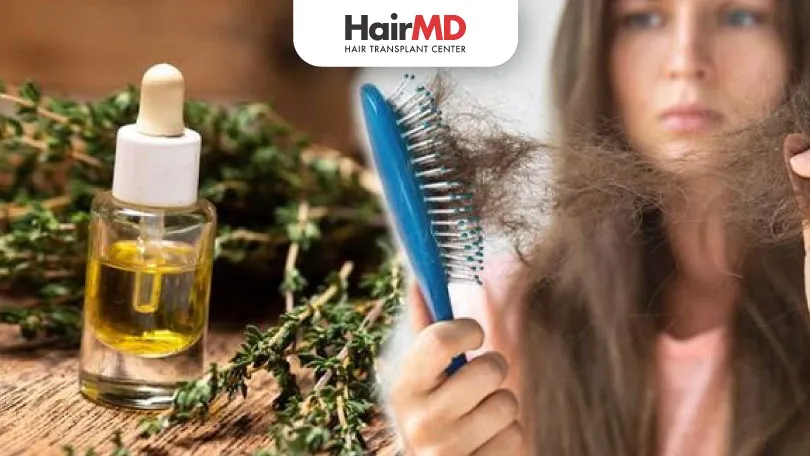22nd January, 2022

Discover the potential benefits of tea tree oil for hair loss. Learn how its antibacterial properties may promote scalp health and support hair growth naturally.
If you’re losing your hair or are concerned that you will soon, you’re probably looking for a solution anywhere you can find it. There are numerous commercial products in the market that have been somewhat successful in preventing hair loss and an even greater number that does nothing at all. Still, one solution that you may not have considered is using tea tree oil for hair loss.
What’s covered in the article?
- What is Tea Tree Oil?
- Does Tea Tree Oil Stop Hair Loss?
- Is It Safe to Use Tea Tree Oil?
- Conclusion
What is Tea Tree Oil?
Tea tree oil is a highly effective natural substance derived from the Melaleuca alternifolia plant in Australia. It is part of a class of substances known as essential oils, many of which have been shown in clinical studies to have incredible health benefits.
It is effective for various minor medical issues, including hair loss, acne, dry scalp, head lice, toenail fungus, athlete’s foot, herpes, and many others. Tea tree oil has a wide range of applications. Combating hair loss and stimulating hair follicles are two of the hair related advantages.
Does Tea Tree Oil Stop Hair Loss?
There are some reasons to believe that massaging tea tree oil into your scalp or applying it to your hair may slow down hair loss and, in some cases, even stimulate the growth of new hair follicles. Tea tree oil can significantly improve the health of your hair. In some cases, it can even help to slow down hair loss. Due to its antibacterial and antifungal properties, tea tree oil can definitely make your hair healthier.
Is It Safe to Use Tea Tree Oil?
You might be wondering if tea tree oil is safe. After all, you don’t want to harm your hair or any other part of your body. You’ll be relieved to learn that tea tree oil is extremely safe to use on your hair and scalp. However, whether you use it for hair or another purpose, there are a few safety concerns to keep in mind.
The only thing to keep in mind is that some people are allergic to tea tree oil, even when it is diluted. Although these are usually minor reactions, you should always test tea tree oil on a small patch of skin or scalp before using it as a treatment. Also, before using tea tree oil, it is highly advised to see a hair doctor.
So, now you know how effective tea tree oil for hair loss can be, you might be able to prevent some hair loss and even stimulate the growth of new hair. It also heals various ailments due to its antifungal, antiviral, and antibacterial properties.
Do You Know?
Nearly 250 Patients Visit HairMD
Everyday For Various Hair Concerns?
(Your journey to healthier and fuller hair starts here!)
Meet Our Dermatologists
Conclusion
While tea tree oil may improve scalp health by addressing issues like dandruff and follicle blockage, its direct impact on hair loss is still uncertain. It can be a helpful addition to your hair care routine, but for significant hair loss, consulting a dermatologist for a comprehensive treatment plan is essential. Always perform a patch test before using tea tree oil to avoid irritation.
Further Reading
Top Kitchen Ingredients to Boost Hair Growth
Discover the best kitchen ingredients for hair growth! Use coconut oil, onion juice, aloe vera & more to nourish your hair naturally and reduce hair fall.
How to Treat Alopecia Areata at Home: Natural Solutions for Hair Growth
Explore home remedies for alopecia areata to promote hair regrowth and boost confidence from home.
Redensyl vs. Minoxidil: Which is the Better For Hair Growth?
Discover the differences between Redensyl and Minoxidil for hair growth. Learn about their effectiveness, side effects, and which treatment might be better for you.
Biotin-Rich Foods for Natural Hair Growth
Know the best foods rich in biotin to help your hair to grow naturally stronger and healthier by experts from HairMD, Pune
Have thoughts? Please let us know
We are committed not only to treating you, but also educating you.











